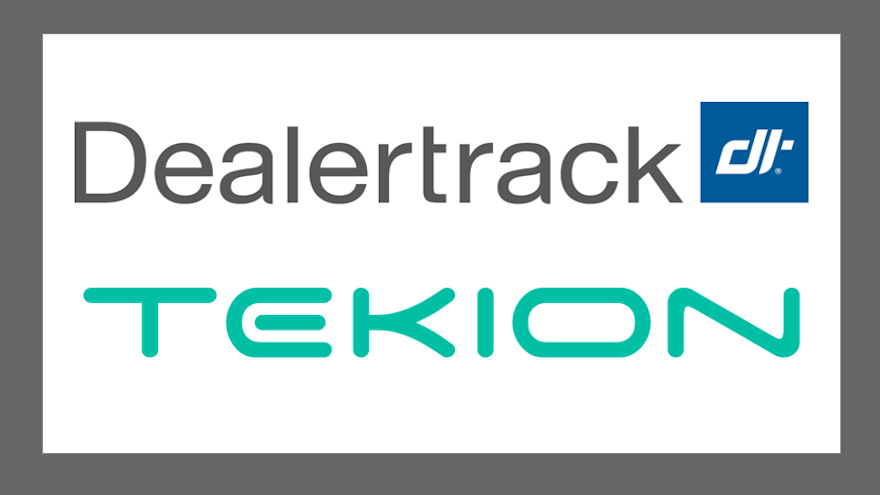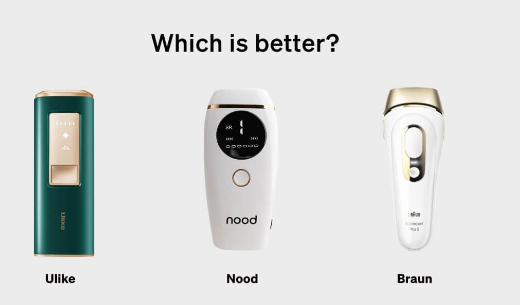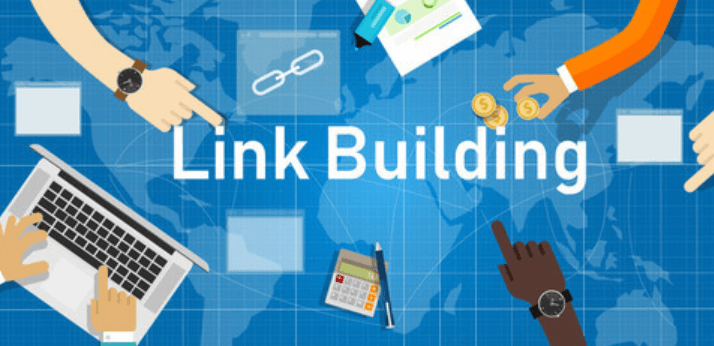get.tech:blog:hackathon-ideas

This idea focuses on enhancing the usability and overall experience of telemedicine platforms. The goal is to make it get.tech:blog:hackathon-ideas easier and more intuitive for patients and healthcare providers to navigate and use these platforms. This could involve improving features like appointment scheduling, video consultations, prescription management, and user interfaces to create a seamless and user-friendly telemedicine experience.
1. Enhancing remote patient monitoring systems for better data collection and analysis:
Remote patient monitoring involves the use of devices to collect patient health data outside of traditional healthcare settings. This idea suggests developing innovative solutions to enhance remote patient monitoring systems, such as improving the accuracy and reliability of data collection devices, optimizing data transmission and storage, and using advanced analytics to derive actionable insights from the collected data. The goal is to improve the monitoring and management of patients’ health remotely, enabling more effective care and timely interventions.
Developing innovative solutions to bridge the digital divide in accessing telemedicine services:
The digital divide refers to the gap in access to digital technologies and internet connectivity. This idea focuses on developing solutions to address barriers that hinder certain populations from accessing telemedicine services, such as individuals in rural or low-income areas, elderly individuals, or those with limited digital literacy. This could involve creating user-friendly telemedicine apps, providing low-cost or free internet access, or developing alternative communication channels to ensure equitable access to telemedicine services for all.
Integrating telemedicine with existing healthcare systems for seamless care coordination:
To maximize the benefits of telemedicine, it is crucial to integrate it with existing healthcare systems. This idea suggests developing solutions that allow for seamless communication and data sharing between telemedicine platforms and electronic health records (EHR) systems. This integration can facilitate efficient care coordination, enable healthcare providers to have a comprehensive view of patient information, and ensure continuity of care regardless of the care setting.
Addressing privacy and security concerns in telemedicine and remote patient care:
Privacy and security are critical considerations when it comes to telemedicine and remote patient care. This idea emphasizes the need for innovative solutions that address potential vulnerabilities and protect patient data. This could involve implementing robust encryption protocols, developing secure authentication methods, ensuring compliance with data protection regulations, and educating patients and healthcare providers about best practices for maintaining privacy and security in telemedicine interactions get.tech:blog:hackathon-ideas.
By focusing on these aspects, healthcare hackathon participants can contribute to improving the user experience, data collection and analysis, access to telemedicine services, care coordination, and privacy and security in the context of telemedicine and remote patient care.
2. AI and Data Analytics in get.tech:blog:hackathon-ideas Healthcare:
Leveraging artificial intelligence (AI) and machine learning get.tech:blog:hackathon-ideas to improve disease diagnosis and prediction:
This idea focuses on harnessing the power of AI and machine learning algorithms to analyze large datasets of patient information, including medical records, lab results, imaging data, and genetic information. By leveraging AI, healthcare professionals can enhance the accuracy and efficiency of disease diagnosis, identify patterns and correlations in patient data, and predict disease progression or potential risks more effectively.
Developing algorithms for personalized treatment recommendations based on patient data:
Personalized medicine is gaining prominence in healthcare. This idea suggests developing algorithms that can analyze patient data to provide tailored treatment recommendations. By considering a patient’s unique characteristics, medical history, genetic information, and other relevant factors, these algorithms can assist healthcare providers in making informed decisions about the most suitable treatments and interventions for individual patients, optimizing outcomes and reducing potential risks.
Utilizing data analytics to optimize healthcare operations and resource allocation:
Data analytics plays a crucial role in optimizing healthcare operations and resource allocation. This idea involves leveraging advanced analytics techniques to analyze healthcare data, such as patient flow, resource utilization, and operational efficiency. By identifying bottlenecks, inefficiencies, and opportunities for improvement, healthcare organizations can enhance the delivery of care, streamline operations, and allocate resources more effectively to meet patient needs.
Enhancing data interoperability and integration across healthcare systems for better insights:
Healthcare systems often suffer from data silos and limited interoperability, hindering comprehensive insights and efficient care coordination. This idea focuses on developing solutions to improve data interoperability and integration across various healthcare systems, such as electronic health records (EHR), lab systems, and imaging platforms. By enabling seamless data exchange and integration, healthcare professionals can access comprehensive patient information, leading to better-informed decision-making and improved continuity of care.
Applying AI in medical imaging for more accurate diagnostics and analysis:
Medical imaging, including radiology and pathology, plays a crucial role in diagnosing and monitoring various conditions. This idea suggests applying AI algorithms to analyze medical images, such as X-rays, CT scans, MRIs, and histopathological slides, for more accurate diagnostics and analysis. AI can assist in detecting anomalies, identifying patterns, and predicting outcomes, enhancing the accuracy and efficiency of diagnoses and reducing the potential for human error.
These ideas highlight the potential of AI, machine learning, and data analytics to revolutionize disease diagnosis, treatment recommendations, healthcare operations, data interoperability, and medical imaging. By leveraging these technologies, healthcare hackathon participants can contribute to advancements that improve patient outcomes, optimize resource utilization, and enhance the overall quality of healthcare delivery.
3. Digital Health and get.tech:blog:hackathon-ideas Wellness:
Designing mobile apps and wearables for health tracking, preventive care, and wellness promotion:
This idea focuses on creating mobile applications and wearable devices that enable individuals to track their health metrics, engage in preventive care activities, and promote overall wellness. These solutions can include features such as step tracking, sleep monitoring, heart rate monitoring, nutrition tracking, and personalized health recommendations. The goal is to empower users to take control of their health and make informed decisions for their well-being.
Creating innovative solutions for mental health support and well-being:
Mental health is a critical aspect of overall well-being. This idea centers on developing innovative solutions to support mental health and well-being. It could involve creating mental health apps that provide resources, coping mechanisms, and guided exercises for stress management, anxiety reduction, mindfulness, and relaxation techniques. These solutions aim to improve mental health outcomes and promote overall emotional well-being.
Developing gamification strategies to encourage healthy behaviors and lifestyle changes:
Gamification refers to the application of game design elements and mechanics to non-game contexts. This idea suggests developing gamified solutions that motivate individuals to adopt and maintain healthy behaviors and lifestyle changes. This could include creating apps or platforms that reward users for meeting specific health goals, offering challenges get.tech:blog:hackathon-ideas, competitions, and virtual incentives to encourage engagement and persistence in healthy behaviors.
Exploring virtual reality (VR) and augmented reality (AR) applications for healthcare education and rehabilitation:
Virtual reality (VR) and augmented reality (AR) technologies provide immersive experiences that can be harnessed for healthcare applications. This idea focuses on exploring the use of VR and AR in healthcare education and rehabilitation. It could involve creating VR simulations for medical training, AR overlays for anatomical visualization, or immersive environments for physical and cognitive rehabilitation. These technologies offer innovative ways to enhance learning, engagement, and recovery in healthcare settings.
Designing digital tools for chronic disease management and medication adherence:
Chronic diseases require ongoing management and adherence to treatment plans. This idea centers on designing digital tools that support individuals in managing chronic conditions and adhering to medication regimens. These tools could include medication reminder apps, personalized treatment trackers, symptom monitoring platforms, and remote patient monitoring systems. The aim is to improve patient outcomes, empower self-management, and enhance communication between patients and healthcare providers.
These ideas highlight the potential of mobile apps, wearables, gamification, virtual reality, and digital tools in promoting health, well-being, and patient engagement. By designing innovative solutions within these areas, healthcare hackathon participants can contribute to improving preventive care, mental health support, healthy behaviors, healthcare education, rehabilitation, and chronic disease management.
4. Innovative Medical Technologies and Devices:
Designing smart medical devices and wearables for remote monitoring and diagnostics:
This idea focuses on developing intelligent medical devices and wearables that enable remote monitoring of patients’ vital signs, health conditions, and diagnostics. These devices can collect real-time data and transmit it securely to healthcare providers for analysis and intervention. Examples include smart wearable sensors for continuous monitoring of heart rate, blood pressure, glucose levels, or smart devices for home-based diagnostic testing.
Developing technologies for early detection and prevention of diseases:
Early detection and prevention are critical in improving health outcomes. This idea suggests developing innovative technologies that aid in the early detection and prevention of diseases. This could include the use of machine learning algorithms to analyze risk factors and predict disease onset, developing advanced screening tools, or creating mobile apps for self-assessment and personalized preventive interventions.
Creating innovative solutions for surgical procedures and medical interventions:
Advancements in technology can greatly impact surgical procedures and medical interventions. This idea focuses on designing innovative solutions that enhance surgical precision, minimize invasiveness, and improve patient outcomes. Examples include surgical robots, augmented reality-guided surgeries, minimally invasive tools, or new techniques for targeted drug delivery.
Designing assistive technologies for individuals with disabilities or special needs:
Assistive technologies can greatly improve the quality of life for individuals with disabilities or special needs. This idea centers on developing innovative solutions that empower individuals and enhance their independence. Examples include prosthetics, exoskeletons, smart home automation systems, or communication devices for individuals with speech impairments.
Applying robotics and automation in healthcare settings for improved efficiency and patient care:
Robotics and automation have the potential to revolutionize healthcare by improving efficiency and enhancing patient care. This idea suggests leveraging robotics and automation technologies in various healthcare settings. Examples include robotic process automation for administrative tasks, robotic surgical systems, automated medication dispensing systems, or robotic rehabilitation devices.
These ideas highlight the potential of smart medical devices, technologies for early detection and prevention, innovative solutions for surgical procedures, assistive technologies, and robotics in healthcare. By focusing on these areas, healthcare hackathon participants can contribute to advancements that enable remote monitoring, early intervention, surgical precision, improved quality of life, and enhanced efficiency and patient care in the healthcare industry.
Conclusion
In conclusion, healthcare hackathons provide a platform for driving innovation and addressing healthcare challenges through collaborative problem-solving. By focusing on a range of ideas and areas, including telemedicine, AI, digital health, data analytics, medical technologies, and robotics, these hackathons foster creativity and spur the development of innovative solutions.
Improving the user experience of telemedicine platforms, enhancing remote patient monitoring systems, and addressing privacy and security concerns are vital to ensuring the widespread adoption and effectiveness of telemedicine in healthcare delivery. Additionally, leveraging AI, machine learning, and data analytics can revolutionize disease diagnosis, treatment recommendations, healthcare operations, and medical imaging.
Designing mobile apps and wearables for health tracking, mental health support, and chronic disease management enables individuals to take control of their health and well-being. The application of gamification, virtual reality, and augmented reality in healthcare education, rehabilitation, and behavior change further enhances engagement and improves outcomes.
Developing smart medical devices, technologies for early detection and prevention, and innovative solutions for surgical procedures and assistive technologies improve patient care, precision, and quality of life. Additionally, the application of robotics and automation in healthcare settings enhances efficiency and patient outcomes.
Healthcare hackathons serve as catalysts for collaboration, ideation, and rapid prototyping, empowering multidisciplinary teams to tackle healthcare challenges creatively. By exploring these diverse ideas and areas, healthcare hackathon participants can contribute to transformative advancements, positively impacting the healthcare industry and improving patient care and outcomes.
In conclusion get.tech:blog:hackathon-ideas, healthcare hackathons offer an opportunity to shape the future of healthcare by fostering innovation, collaboration, and the development of novel solutions that address critical healthcare challenges.






























